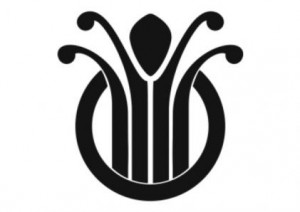 [John Hendrik Weitzmann, Communia Assoc., Link, (CC0)] Last week Communia joined the “European Observatory on Infringements of IPR” which is hosted by the European Union’s Office of Harmonization in the Internal Market (OHIM). The Observatory’s task is to provide the EU Commission with insights on every aspect of IPR infringement. It does so primarily by conducting surveys and studies on how, where and why IP rights are violated by whom and to what extent. In addition is helps coordinate across borders the efforts of various institutions involved in law enforcement. It also runs general as well as focussed awareness campaigns in the field of IP. This is done in conjunction with a permanent stakeholder dialogue, which is organized in working groups and a yearly plenary.
[John Hendrik Weitzmann, Communia Assoc., Link, (CC0)] Last week Communia joined the “European Observatory on Infringements of IPR” which is hosted by the European Union’s Office of Harmonization in the Internal Market (OHIM). The Observatory’s task is to provide the EU Commission with insights on every aspect of IPR infringement. It does so primarily by conducting surveys and studies on how, where and why IP rights are violated by whom and to what extent. In addition is helps coordinate across borders the efforts of various institutions involved in law enforcement. It also runs general as well as focussed awareness campaigns in the field of IP. This is done in conjunction with a permanent stakeholder dialogue, which is organized in working groups and a yearly plenary.
The European Observatory on Infringments of IPR is a unit of the EU’s Office of Harmonization in the Internal Market (OHIM), which is located on top of a cliff overlooking the Mediterranean sea in Alicante, Spain
As part of this year’s plenary, held last week in Alicante, Spain, Communia joined the observatory as only the seventh civil society group. By far the largest stakeholder group are 58 industry representatives, followed by 28 public sector institutions and 10 representatives with an observer status, which include international orgnizations such as OECD but also US interest groups. This heavy industry bias of the observatory members has to do with the Observatory’s origin being an initiative from the world of industrial property (such as trademarks, registered designs) and insititutions fighting product counterfeits entering the EU internal market.
The decision to join the observatory was prompted by the fact that the Observatory increasingly moves its focus also to the field of copyright and related rights. A major part of its agenda for 2015 deals with finding out about what children and young adults know and think about counterfeit goods and copyright violation, and with running campaigns to raise the yonger generation’s awareness of the damage done by rights violations.
The observatory is also working on a “Study on Open Licensing and the Public Domain”, both of which are core fields of expertise of COMMUNIA Association as a network and of its members. We can draw on this knowledge and also on the material produced by the Communia Project between 2007 and 2011 to support the Observatory with such studies. This offer was met with great interest by the research staff involved.
Over and above support for the study, Communia will strive to make a case for the Public Domain as a concept and as a pool of re-usable cultural heritage whenever that seems appropriate in the work of the Observatory, especially in the relevant working groups. The necessity to do this is obvious, as the Public Domain does not have too many other supporters and its value for society is often overlooked.




